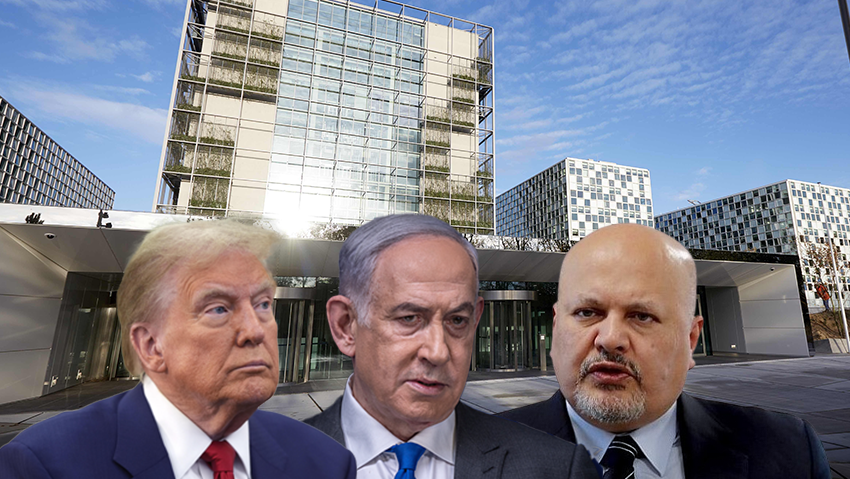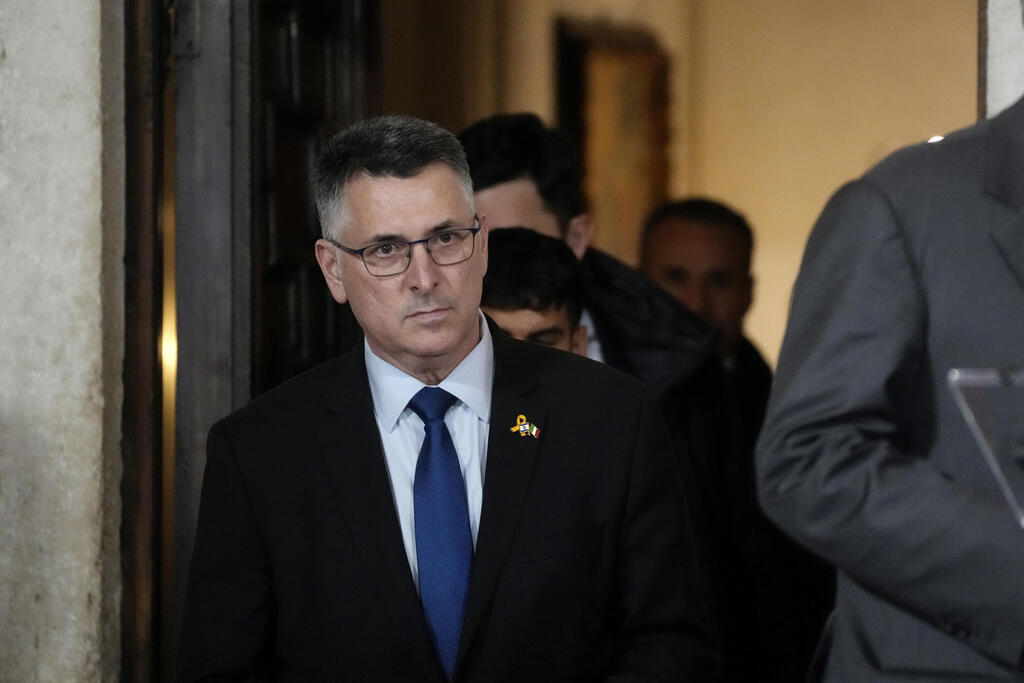Getting your Trinity Audio player ready...
Israel and the United States are coordinating an extensive sanctions plan targeting judges and officials of the International Criminal Court (ICC) in response to the issuance of arrest warrants against Israeli Prime Minister Benjamin Netanyahu and former Defense Minister Yoav Gallant. Sanctions are set to take effect on January 20, President-elect Donald Trump's first day back in office.
The U.S. is reportedly preparing severe measures against ICC Chief Prosecutor Karim Khan, as well as judges and staff involved in the case. These include entry bans to the United States and the freezing of bank accounts, which would also hinder their ability to use credit cards in Europe. According to a senior Israeli official, these actions resemble sanctions previously imposed on violent West Bank settlers, which effectively barred them from using credit cards in Israeli banks due to fears of repercussions from the U.S. Treasury.
In a second phase, additional sanctions are being pushed forward by Republican Senator Lindsey Graham. These measures would prohibit the transfer of U.S. aid to countries that announce they will honor the ICC arrest warrants. While these sanctions are unlikely to affect Western European nations, they could have significant consequences for countries reliant on U.S. assistance.
The overarching goal of the sanctions plan is to exert unprecedented pressure on the ICC and force it to withdraw the arrest warrants. Israel has already filed an appeal with the court, which it hopes will provide the ICC with a face-saving exit.
“We will bring the court to its knees and then negotiate the closure of the case," a senior Israeli source said. "Our appeal will give them a way to climb down from the tree top they ventured to.”
In parallel, Israel is pursuing diplomatic efforts to convince the United Nations Security Council to request a suspension of the arrest warrants, citing broader political interests and the promotion of peace.
Senior Israeli officials claim Khan acted improperly in issuing the ICC arrest warrants, alleging the decision was influenced by personal allegations of sexual harassment against him. According to these officials, Khan issued the warrants two days before a planned visit to Israel in an effort to deflect attention from the accusations.
Background on the ICC arrest warrants
In November, the ICC rejected appeals submitted by Israel and issued arrest warrants for Netanyahu and Gallant. The court also issued an arrest warrant for Mohammed Deif, the Hamas military commander who has reportedly already been killed, a claim that remains unconfirmed by Hamas. The court accuses Netanyahu and Gallant of criminal responsibility for the following offenses:
- As co-perpetrators of the war crime of starvation as a method of warfare.
- Crimes against humanity, including murder, persecution, and other inhumane acts.
- As civilian superiors, for the war crime of intentionally directing attacks against civilian populations.
Foreign minister responds
Foreign Minister Gideon Sa’ar addressed the arrest warrants during a diplomatic visit to Italy, emphasizing Israel is not a signatory to the Rome Statute and is therefore not under the jurisdiction of the ICC. Sa’ar described the court’s actions as violating fundamental legal principles of jurisdiction and complementarity, accusing the ICC of undermining Israel's right to self-defense.
<< Get the Ynetnews app on your smartphone: Google Play: https://bit.ly/4eJ37pE | Apple App Store: https://bit.ly/3ZL7iNv >>
During his meetings, Sa’ar highlighted the recent appointment of Nawaf Salam, the former president of the International Court of Justice (ICJ), as Lebanon’s prime minister. Sa’ar noted Salam had previously referred to Israel as an "enemy" and had presided over a case brought against Israel by South Africa alleging genocide.
“What kind of justice can Israel expect from these judicial bodies under such circumstances?” Sa’ar asked. “Israel is committed to international law, but this is a mockery and politicization of international judicial institutions.”
Italy's foreign minister and justice minister assured Sa’ar that the Italian government has received legal advice confirming immunity for Israeli leaders, including Netanyahu, during visits to Italy. They further explained that their position on immunity is grounded in the Vienna Convention.
This situation underscores the intensifying geopolitical tensions between Israel, the United States and international judicial institutions, as well as the broader implications for global diplomatic and legal norms.




